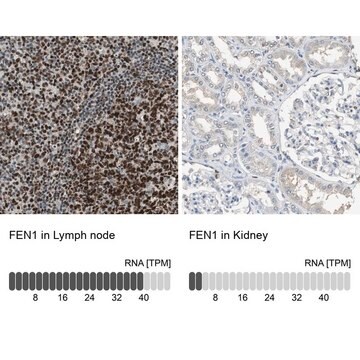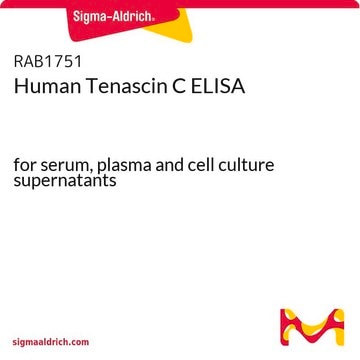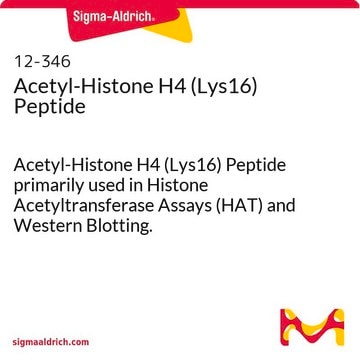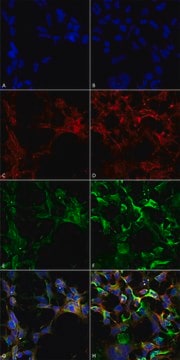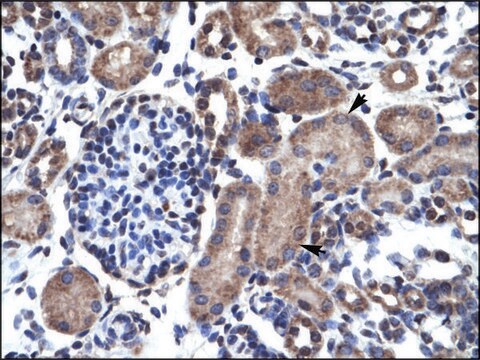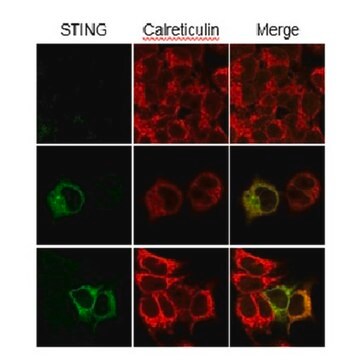SAB5300423
Monoclonal Anti-MKI67 antibody produced in mouse
clone 4A1, ascites fluid
Synonyme(s) :
KIA, Ki-67, MKI67
About This Item
Produits recommandés
Source biologique
mouse
Niveau de qualité
Conjugué
unconjugated
Forme d'anticorps
ascites fluid
Type de produit anticorps
primary antibodies
Clone
4A1, monoclonal
Poids mol.
358 kDa
Espèces réactives
human
Technique(s)
direct ELISA: 1:10,000
immunohistochemistry: 1:200-1:1,000
western blot: 1:500-1:2,000
Isotype
IgG2b
Conditions d'expédition
wet ice
Température de stockage
−20°C
Modification post-traductionnelle de la cible
unmodified
Informations sur le gène
human ... MKI67(4288)
Immunogène
Mouse monoclonal antibody raised against KI67
Forme physique
Clause de non-responsabilité
Vous ne trouvez pas le bon produit ?
Essayez notre Outil de sélection de produits.
Code de la classe de stockage
10 - Combustible liquids
Point d'éclair (°F)
Not applicable
Point d'éclair (°C)
Not applicable
Certificats d'analyse (COA)
Recherchez un Certificats d'analyse (COA) en saisissant le numéro de lot du produit. Les numéros de lot figurent sur l'étiquette du produit après les mots "Lot" ou "Batch".
Déjà en possession de ce produit ?
Retrouvez la documentation relative aux produits que vous avez récemment achetés dans la Bibliothèque de documents.
Notre équipe de scientifiques dispose d'une expérience dans tous les secteurs de la recherche, notamment en sciences de la vie, science des matériaux, synthèse chimique, chromatographie, analyse et dans de nombreux autres domaines..
Contacter notre Service technique